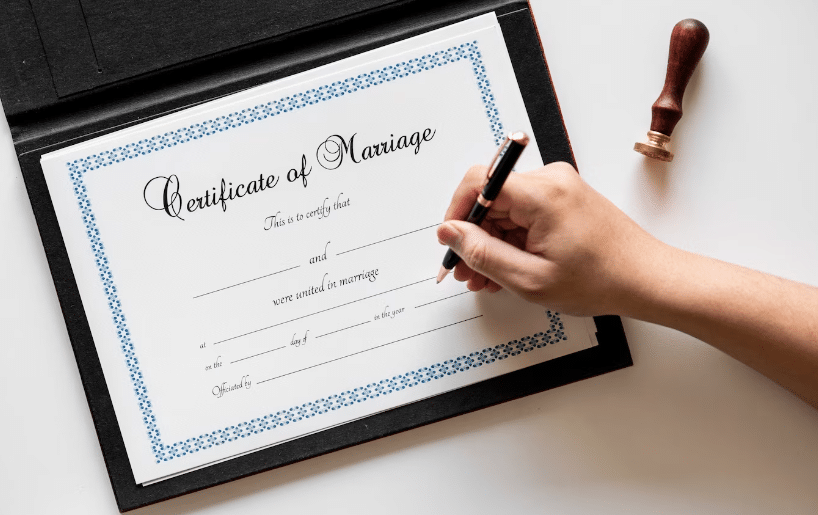
Deciding to end a marriage is a significant life event. Understanding the process is crucial to ensure you can finish it smoothly. This will reduce the emotional toll of having to deal with complications.
This article will detail how to apply for divorce in Australia.
What is divorce?
Divorce is the legal dissolution of a marriage. It is handled by the Federal Circuit and Family Court of Australia under the Family Law Act 1975. Divorce in Australia operates according to the no-fault principle.
This means the Court doesn’t consider who’s at fault for the marriage breakdown. It only needs to be convinced that the relationship is irreconcilable.

How to Apply for Divorce in Australia? (Step by Step)
Step 1: Determine Your Eligibility
To be eligible to get a divorce in Australia, you or your spouse must meet one of the following criteria:
At least one spouse must regard Australia as their home and intend to live in Australia indefinitely; or
Be an Australian citizen by birth, descent, or by grant of Australian citizenship; or
Ordinarily live in Australia and have done so for 12 months immediately before filing for divorce.
Marriages of less than two years
If your marriage lasted less than two years, you must attend counselling before your application. Once you have completed the sessions, you will receive a counselling certificate that must be included in your divorce application.
There may be situations where you can’t attend counselling. In this case, you must submit an affidavit explaining why your attendance wasn’t possible. Some reasons why counselling isn’t appropriate include:
You can’t locate your spouse;
There was a history of domestic violence in your marriage;
Your spouse refuses to attend despite your best efforts. You will need to detail your attempts to get them to attend.
Separation
Before applying a divorce, you must have been separated for at least a year. There is no formal way to establish your separation date. This can make it unclear when your separation started. The more evidence you can produce for your separation, the easier it will be to establish the starting date. Evidence may include:
Separate residences
Evidence that you live in a different residence, such as a new lease agreement or utility bills in one name.Financial separation
Demonstrate that you have closed joint accounts and changed beneficiaries in insurance policies and wills.Informed government agencies
Show that you have informed agencies like Centrelink of your separation.

Step 2: Prepare Marriage Certificate and Other Documentation
You must attach your marriage certificate to your application. If you need a replacement, you can request one from the Registry of Births, Deaths and Marriages for a $54.40 fee. You can only submit an official certificate with your application, not a ceremonial or commemorative certificate.
If you were married overseas, your marriage certificate may be in a language other than English. You will need to get an authorised translation first. The translation should be completed by a person accredited by the National Accreditation Authority for Translators and Interpreters.
The translator will complete an Affidavit Translation of Marriage Certificate. They will then provide a translation of the marriage certificate and a document stating their qualifications.

Step 3: File Your Divorce Application
You can pursue a divorce through a sole or joint application. Divorce applications are typically completed online. The basic application process is as follows:
Register an account on the Commonwealth Courts portal;
Select the option application for filing for divorce online;
Fill out the application form;
Select print preview to review the completed application;
Upload any necessary supporting documentation;
Choose lock and continue once you are sure the application has been filled out accurately;
Print the application;
Joint applicants must both sign the Affidavit for divorce sample for eFiling Application.
Have the signatures witnessed by a Justice of the Peace
Joint applicants may sign separate Affidavits if needed
Upload the signed and witnessed Affidavit;
Download the brochure Marriage Families and Separation;
Pay the filing fee and submit the application;
Select a court hearing date.
The fee for a divorce application is $1060 as of 1 July 2023. You may be eligible for a reduced fee of $350.
If you want to know more about this, kindly check our complete guide for divorce applications.
Sole application
A sole application has additional requirements. The primary difference is the need to serve the divorce documents after their submission to the Court.

Step 4: Serving Divorce Documents
There are several documents you must serve on your former partner:
A sealed copy of the divorce application with a Notice of Application for Divorce attached;
A sealed copy of the Affidavit for eFiling;
A copy of the Marriage, families and Separation brochure
An Acknowledgment of Service (Divorce)
There are different ways to serve divorce papers.
Serving your spouse's lawyer
You may serve your spouse’s lawyer if they accept service. Once they have completed the Acknowledgment of service correctly, no other documentation is necessary.

Step 5: Attend the Divorce Hearing (If Required)
As a sole applicant, you must attend the divorce hearing after applying if you have children under 18. Joint applicants aren’t required to attend unless they indicate their desire.
There are other circumstances where it’s advisable to attend the hearing. This includes if you were separated under one roof and need to explain your circumstances further. We’d also recommend attending if you applied for substituted or dispensation of service.
Step 6: Divorce Finalisation
Once all requirements have been met, your divorce order will come into effect one month after the Court receives your application.

Other Considerations
Divorce applications don’t account for other considerations like property and parenting arrangements.
Property settlement
There are various ways to settle property matters. Your options include:
Informal agreement;
Binding financial agreement (BFA);
Property order.
A property order or BFA are recommended to ensure you have legal enforceability.
Parenting arrangements
Like property matters, parenting arrangements can be made formally or informally. Here are your options:
Parenting consent order;
Parenting order.
Court orders are the only way to make parenting arrangements legally binding. It’s best to apply for a consent order to arrange co-parenting agreeably.
Conclusion
Divorce can be an emotionally challenging process. By understanding the process of applying for divorce in Australia, you can make it as smooth and straightforward as possible. Before approaching family law matters, we recommend contacting a family lawyer.
If you want to apply for a divorce, contact our divorce lawyers for legal advice and support.
Don’t let legal issues stress you out. Contact us today for a free consultation.






